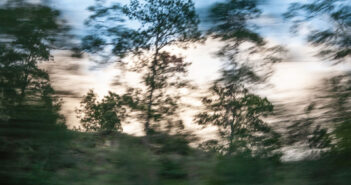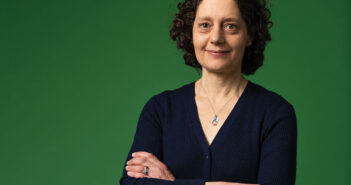A changing environment gives us one more thing to worry about.
Normally, being named “the hottest” anything would be a compliment, but not when it comes to global temperatures. Sorry, 2023, you were the hottest year in 100,000 years, by a lot: 1.48 degrees Celsius, or 2.66 degrees Fahrenheit. That was more than climate scientists were predicting, too, a possible indication this warming thing is happening faster than we thought it would.
It’s one more piece of bad news that can contribute to eco-anxiety, what the American Psychological Association describes as “the chronic fear of environmental cataclysm.” I don’t think I suffer from eco-anxiety, just overwhelming pessimism. When microplastics and forever chemicals permeate every environment from the soil to the ocean to our own homes, it’s hard to feel hopeful. How could we ever undo the damage? Younger generations are more worried about the future of our planet, with three-quarters of young people saying these concerns affect their daily lives, according to a study in the Lancet Planetary Health.
But it appears knowledge can alleviate some of that anxiety. Last fall, Kate Smith, who
is featured in the article on planetary health in this issue, published the results of a study
she conducted among undergraduates in her Planetary Health course. After taking the
solutions-based course, students were less pessimistic about climate change and expressed
cautionary optimism as well as the importance of creating and implementing solutions.
Maybe I should audit Kate’s course.
–Kris Cambra, Editor
P.S. Congratulations are in order for Phoebe Hall, who picked up the Gold Award for Excellence
from the Association of American Medical Colleges for her article “Reframing Fatness” in the
fall 2022 issue. We’ll put that next to the magazine’s Best of District 1 award from the Council
on Advancement and Support of Education.
- I just want to take a moment to write to you to say thank you for publishing the piece on Colleen Kelly’s kidney transplant to Chuck Hampton (Fall 2023).
Chuck and I both arrived at Brown within months of each other 17 years ago, me as a fresh-faced freshman undergraduate swimmer and Chuck in his now long-familiar role as the welcome center specialist, then only at OMAC while the Nelson Fitness Center was a vacant lot. He and I then got to spend a bonus four years of early-morning fist bumps together when was I the assistant coach for women’s swimming in the mid-2010s.
To me, and to—as the article phrased it—generations of student-athletes at Brown, Chuck simply is Brown Athletics. Chuck is the best of what we can all be as humans. And it brought me to tears reading that someone recognized this so much as Colleen did. I have no doubt that this story will help remind lots of us of the good in this world.
With gratitude for your work,
Sam Speroni ’11



